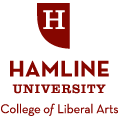Date of Award
Spring 2019
Degree Type
Honors Project
School
College of Liberal Arts
First Advisor
Nurith Zmora
Abstract
In 1870 two towns emerged on the northwestern head of Lake Superior. Both sought to take advantage of the only sandy and protected bay on the great northern lake. Superior WI, on the southern end of the bay, was situated at the only natural entrance to the harbor. In the fall of 1870 the residents of Duluth, MN, located on the northern Minnesotan shore, began digging a canal to rival Superior’s entrance. The result was a dispute between the two towns that lasted several years. Both towns fought tirelessly to fulfill what they saw as their destiny to become the region’s major port. The goal of this research is to investigate how Duluth, lacking all the natural advantages of its rival, managed to wrestle its destiny from Superior to become the world’s largest inland port. The dispute has been detailed by local historians’ numerous times, but mostly as a regional curiosity. By examining government documents, including Congressional transcripts and court cases, as well as the writings of influential businessmen and politicians, this research places the dispute in the larger context of the post-Civil War Reconstruction Era. These documents show that the digging of the canal was more than just the triumph of frontier pioneers, it was an event bolstered by the radical faction of the Republican Party in an attempt to meet their long-term geo – political goals. This is significant in that the radical faction of the Republican Party has long been viewed as corruption free. By examining the Duluth Canal dispute, this research challenges that perception.
Recommended Citation
Bertel, Parker, "The Battle Over the Canal: The Dispute Between Sister Cities that Shaped the Future of the Twin Ports" (2019). Departmental Honors Projects. 83.
https://digitalcommons.hamline.edu/dhp/83
dc_type
text
dc_publisher
DigitalCommons@Hamline
dc_format
application/pdf
dc_source
Departmental Honors Projects

